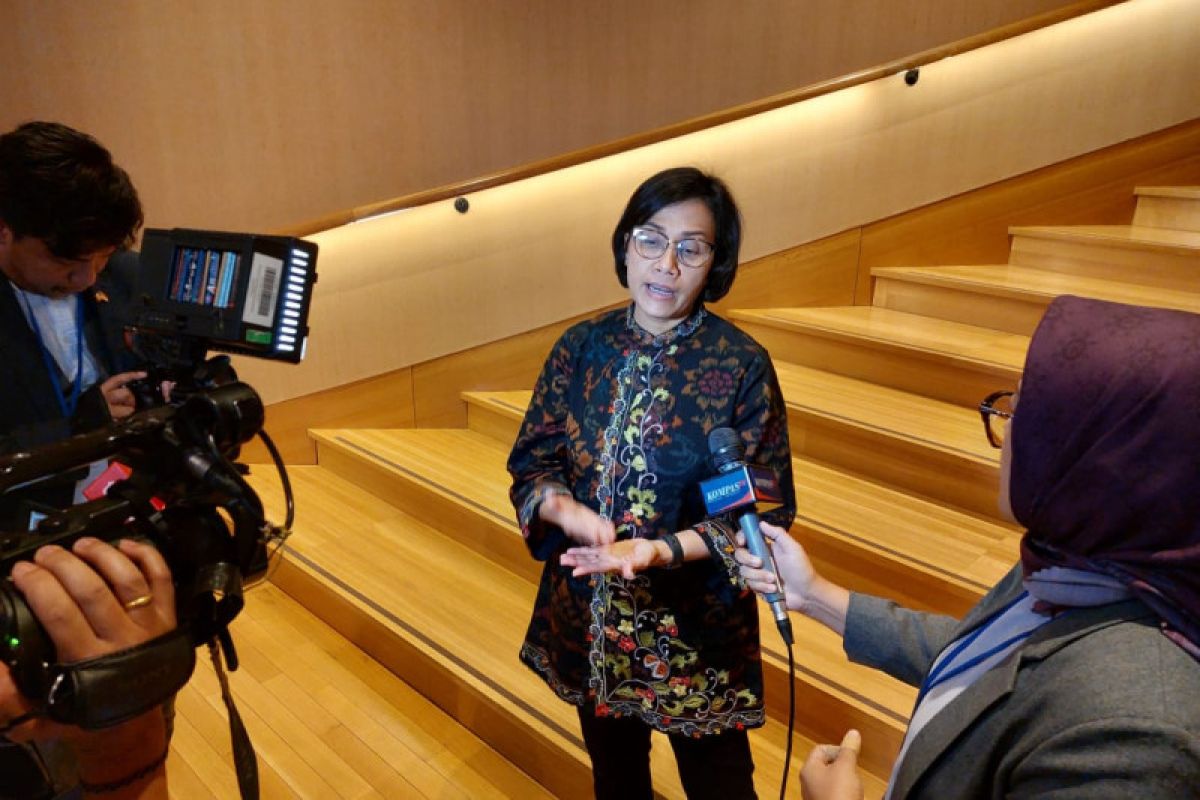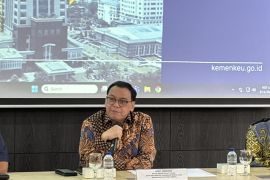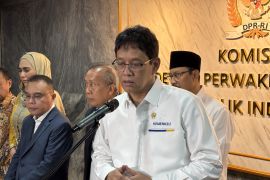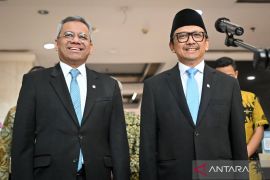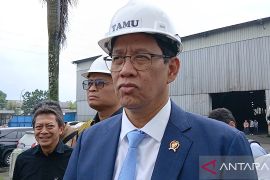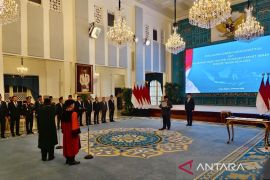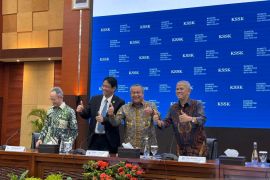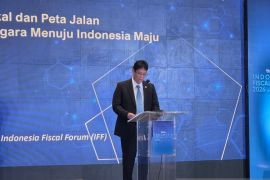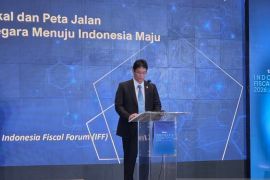"What's interesting is that this capital inflow can neutralize the impact of the outflow caused by the Fed's interest rate hikeWashington DC, AS (ANTARA) - The state budget (APBN), as a fiscal instrument, can help in sustaining an economic slowdown in 2023, according to Finance Minister Sri Mulyani Indrawati.
The minister said the government, along with the House of Representatives (DPR), had prepared the 2023 state budget to avoid the highly uncertain market risk due to geopolitical conflicts and inflationary pressures.
"During the pandemic, the House, along with the government, has made the State Budget flexible and responsive," Sri Mulyani remarked when met on the sidelines of the IMF-WB Meeting here on Tuesday.
Related news: Indonesia succeeds in mitigating COVID-19 crisis: Minister
The minister said the APBN, with a budget deficit of below three percent of the GDP, could support post-pandemic national economic recovery, so it has the potential to strengthen the consumption and investment sectors.
"What's interesting is that this capital inflow can neutralize the impact of the outflow caused by the Fed's interest rate hike," the finance minister stated.
In the latest World Economic Outlook (WEO) report, the IMF estimates that the global economy will lie in the range of 3.2 percent in 2022, and slow down to 2.7 percent in 2023, or a decrease of 0.2 percent as compared to the outlook in July 2022.
IMF Economic Counselor Pierre-Olivier Gourinchas explained that most countries will experience contraction until next year, with the largest economies, such as the US, European Union, and China, to continue the slowing trend.
"There are three challenges that affect the slowdown, namely the conflict in Ukraine, inflationary pressures, and the weakening economy in China," Pierre-Olivier Gourinchas stated at a press conference for the World Economic Outlook (WEO) in Washington D.C.
Related news: Minister to grant equity participation to two SOEs, Land Bank Agency
Meanwhile, Bank Indonesia Deputy Governor Dody Budi Waluyo assessed that Indonesia's current economic resilience is still good and growth performance is on the right track despite the IMF having lowered its global projections in its latest report.
This economic resilience can be achieved owing to the still strong export of commodities and the strengthening of the downstream industry or processing of export-oriented mineral products.
"We have nickel and copper that were not allowed to be exported because they had to go through a smelter first. Now, we have got the results, and the price has reached 10 times," Waluyo stated.
Related news: Minister expects Indonesia to become full FATF member by 2023
Related news: BLT BBM realization at Rp6.2 trillion: Finance Minister
Translator: Satyagraha, Katriana
Editor: Fardah Assegaf
Copyright © ANTARA 2022
